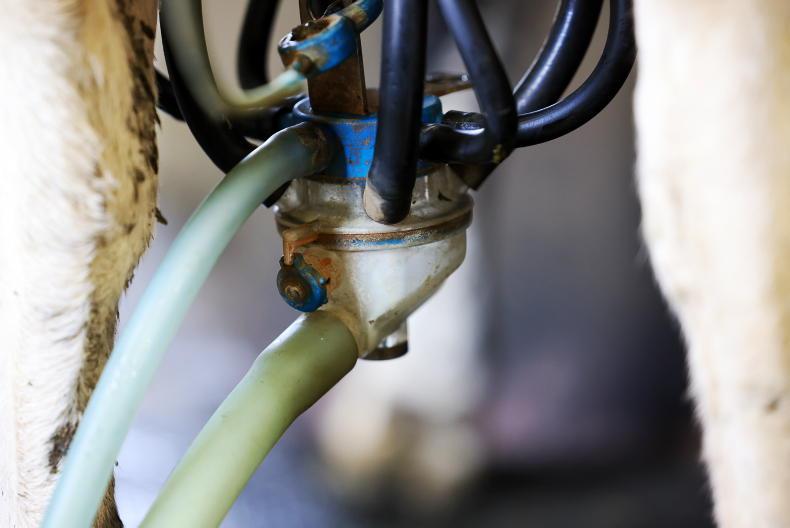Bank of Ireland shares and the Irish Government
Last week, Minister for Finance, Paschal Donohoe, made the surprise announcement that the Government will sell part of the State’s 13.9% shareholding in Bank of Ireland over the next six months, in an orderly fashion. He stated that market conditions and other considerations will determine the number of shares sold. The Government’s stake is worth about €676m at current market prices. The shares will not be sold below a certain undisclosed price per share and will be kept constantly under review. The plan will be managed by Citigroup.
This will be the State’s first sale of any bank shares since 2017, when it cut its holding in AIB to 71% from 99.9%, recouping part of the taxpayer’s funds. The Government owns 75% of PTSB Bank. The minister confirmed there are no plans to sell shares in these two lenders.
"The imminent departures of Ulster Bank and KBC Bank from the Irish market did not influence the Government’s decision to sell down its stake in Bank of Ireland, but will have an impact on the price investors will be willing to pay to buy the shares," the Minister for Finance said.
Surely, the sale of the State's shareholding will be seen as an important step in creating a normalised domestic banking system
Bank of Ireland was the only Irish bank that avoided majority state ownership back in 2011, after receiving investment from a consortium, including former US commerce secretary Wilbur Ross, Fairfax Financial (a Canadian investment firm) and real estate company Kennedy Wilson. The Government has already recouped more than the €4.7bn it originally invested in the bank.
Francesca McDonagh, CEO of Bank of Ireland, considers the move by the Government a positive step for Irish tax payers, the Irish economy and the bank itself.
Bank of Ireland shares are up 31% so far this year, but 45% lower than they were in 2018, before a Europe wide slump in bank shares.
After the announcement, Bank of Ireland shares were 4.5% lower at €4.30.
Since the start of the year, shares in Irish banks have been among the top performers in Europe. The strong share price performance is based on the prospects of a strong economic recovery post COVID-19.
Surely, the sale of the State's shareholding will be seen as an important step in creating a normalised domestic banking system.
AIB Bank agree a deal with Ulster Bank
It has now been agreed that AIB will buy €4.2bn of Ulster Banks’s performing loans (corporate and commercial), following a period of due diligence on these loan books. AIB is able to fund this from its existing resources. The transaction remains subject to customary regulatory approvals. Once this is passed, AIB intends to migrate the loan book on a phased basis over a period of 12 to 18 months, which will involve the Ulster Bank loans moving to AIB.
As a result of this deal, around 280 Ulster Bank employees who are directly involved in the servicing of this loan book will transfer to AIB, with the final number to be confirmed once the deal nears completion.
Ulster Bank has stated that there is no immediate change for customers. The bank has re-confirmed it remains open for new and existing business for all its customers. The bank also said that its commercial banking relationship mangers will continue to actively engage with business customers throughout this process. Impacted customers from Ulster Bank will remain protected under all legal and regulatory legislation.
Read more
Money Mentor: purchasing a tractor
Money Mentor: is your agricultural business SCA ready?
Bank of Ireland shares and the Irish Government
Last week, Minister for Finance, Paschal Donohoe, made the surprise announcement that the Government will sell part of the State’s 13.9% shareholding in Bank of Ireland over the next six months, in an orderly fashion. He stated that market conditions and other considerations will determine the number of shares sold. The Government’s stake is worth about €676m at current market prices. The shares will not be sold below a certain undisclosed price per share and will be kept constantly under review. The plan will be managed by Citigroup.
This will be the State’s first sale of any bank shares since 2017, when it cut its holding in AIB to 71% from 99.9%, recouping part of the taxpayer’s funds. The Government owns 75% of PTSB Bank. The minister confirmed there are no plans to sell shares in these two lenders.
"The imminent departures of Ulster Bank and KBC Bank from the Irish market did not influence the Government’s decision to sell down its stake in Bank of Ireland, but will have an impact on the price investors will be willing to pay to buy the shares," the Minister for Finance said.
Surely, the sale of the State's shareholding will be seen as an important step in creating a normalised domestic banking system
Bank of Ireland was the only Irish bank that avoided majority state ownership back in 2011, after receiving investment from a consortium, including former US commerce secretary Wilbur Ross, Fairfax Financial (a Canadian investment firm) and real estate company Kennedy Wilson. The Government has already recouped more than the €4.7bn it originally invested in the bank.
Francesca McDonagh, CEO of Bank of Ireland, considers the move by the Government a positive step for Irish tax payers, the Irish economy and the bank itself.
Bank of Ireland shares are up 31% so far this year, but 45% lower than they were in 2018, before a Europe wide slump in bank shares.
After the announcement, Bank of Ireland shares were 4.5% lower at €4.30.
Since the start of the year, shares in Irish banks have been among the top performers in Europe. The strong share price performance is based on the prospects of a strong economic recovery post COVID-19.
Surely, the sale of the State's shareholding will be seen as an important step in creating a normalised domestic banking system.
AIB Bank agree a deal with Ulster Bank
It has now been agreed that AIB will buy €4.2bn of Ulster Banks’s performing loans (corporate and commercial), following a period of due diligence on these loan books. AIB is able to fund this from its existing resources. The transaction remains subject to customary regulatory approvals. Once this is passed, AIB intends to migrate the loan book on a phased basis over a period of 12 to 18 months, which will involve the Ulster Bank loans moving to AIB.
As a result of this deal, around 280 Ulster Bank employees who are directly involved in the servicing of this loan book will transfer to AIB, with the final number to be confirmed once the deal nears completion.
Ulster Bank has stated that there is no immediate change for customers. The bank has re-confirmed it remains open for new and existing business for all its customers. The bank also said that its commercial banking relationship mangers will continue to actively engage with business customers throughout this process. Impacted customers from Ulster Bank will remain protected under all legal and regulatory legislation.
Read more
Money Mentor: purchasing a tractor
Money Mentor: is your agricultural business SCA ready?









SHARING OPTIONS